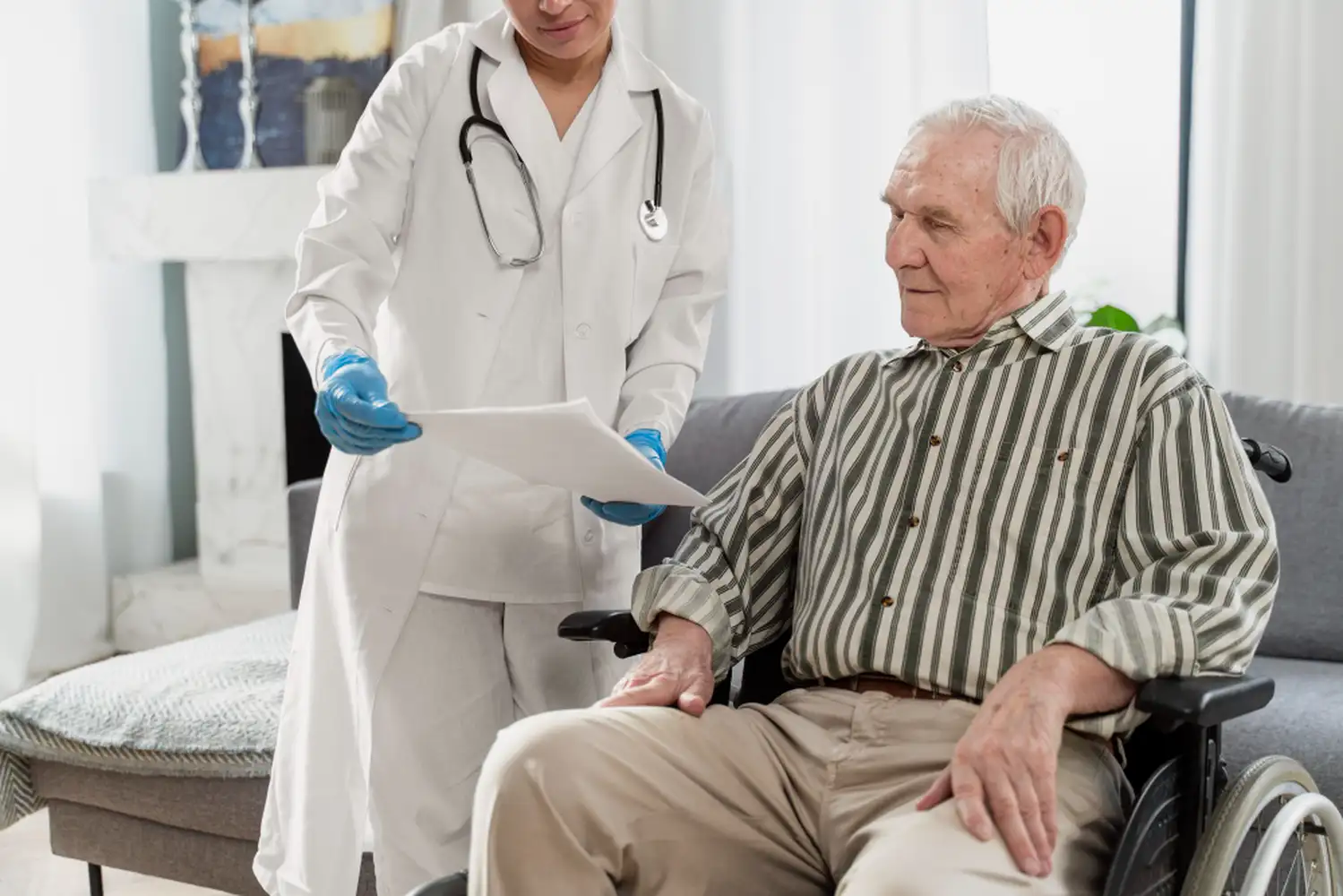Grief occurs when a person loses a loved one to death. The reactions that the bereaved person shows to this loss are physical, psychological and behavioral. When a person loses a loved one, it is normal to show a grief reaction.
Despite the similarities of this reaction with depression, such as: sad mood and social isolation, there is one very important difference; and that is that this grief is normal and does not require treatment. However, the longer the grief lasts (usually over 6 months), the abnormal state becomes and requires therapeutic interventions.
What is grief counseling?
Grief counseling is a type of therapy designed to help people through the different stages and emotions of grief after a loss. Counseling helps people avoid some of the more intense manifestations of grief and process their emotions in a healthy way.
💔 Grief from Small Losses vs. Losing Loved Ones
The sadness and grief we experience when losing an object is much less than the grief we experience when losing the most precious person in our lives. For example, when losing a car or household items, we become upset and angry to the point of throwing a tantrum or even crying in some cases.
😶 Shock, Denial & Silence After Losing Someone
When we lose a loved one and the closest people in our lives, the shock we feel may be so great that our brains are unable to analyze and process it, and we unconsciously enter into various situations such as denial and silence.
This is one of the stages of grieving for loved ones that many face. Grief counseling can help us confront these problems and gradually return us to our normal lives.
🏠 Mental Exhaustion & Support from a Grief Counselor
After experiencing the grief of losing a loved one, you may feel so mentally exhausted and depressed that you may not even want to leave the house to do your daily activities.
In this case, talking and staying in touch with a grief counselor will help you deal with this problem faster and find solutions to treat it.
💬 Speak with a Grief Counselor Today – Begin Your Healing Journey
👥 How Grief Counseling Helps All Ages (Including Home Services)
This type of counseling can help people of all ages cope with the grief and other emotions that are part of a normal response to losing someone. However, if your grief is overwhelming and difficult for you to handle, you may benefit from grief counseling home services. This type of therapy can help address behavioral and physical problems you may experience after a loss.
👉 Begin Your Healing Journey in Garland, TX
Different Types of Grief Counseling That Support Emotional Healing
If you can’t emotionally detach yourself from the person who passed away, deep grief will take over and won’t let go. This can lead to distressing thoughts, dysfunctional behaviors, and difficulty regulating emotions, making it more difficult for you to adjust to life without your loved one.

🎯 Acceptance and Commitment Therapy (ACT)
This grief counseling method encourages you to accept negative feelings and circumstances so you can focus on healthier patterns that can help you achieve your goals. The benefits of this therapy include:
- ✓ Encourages acceptance of painful emotions and life events;
- ✓ Promotes mindfulness and emotional awareness;
- ✓ Helps individuals align actions with personal values;
- ✓ Reduces avoidance behaviors and emotional suppression;
- ✓ Builds resilience and psychological flexibility;
- ✓ Supports goal setting and positive life changes.
🧠 Cognitive Behavioral Therapy (CBT)
This method of grief counseling involves identifying and changing thought patterns that can negatively affect your behavior. The benefits of this therapy include:
- ✓ Helps identify and reframe negative thought patterns;
- ✓ Reduces symptoms of depression and anxiety;
- ✓ Improves emotional regulation and coping skills;
- ✓ Encourages positive behavioral changes;
- ✓ Strengthens problem-solving and decision-making abilities;
- ✓ Promotes a healthier, more balanced outlook on life.
👥 Group Therapy for Shared Healing
It is done in a group setting where participants share their feelings to work together towards recovery. Group therapy sessions are led by experienced and professional therapists to have the best impact. The benefits include:
- ✓ Provides a safe space to share emotions and experiences;
- ✓ Reduces feelings of isolation and loneliness;
- ✓ Encourages mutual support and understanding;
- ✓ Helps develop social and communication skills;
- ✓ Offers different perspectives and coping strategies;
- ✓ Builds a sense of belonging and emotional connection.
🎨 Art Therapy for Emotional Expression
Creative activities help people of all ages express their emotions and improve their mood. The benefits are:
- ✓ Encourages self-expression through creative outlets;
- ✓ Reduces stress, anxiety, and emotional tension;
- ✓ Enhances self-awareness and emotional clarity;
- ✓ Promotes relaxation and mindfulness;
- ✓ Supports healing from trauma and grief;
- ✓ Boosts mood and overall emotional well-being.
🧸 Play Therapy for Children’s Healing
Often used to gain insight into a child’s thoughts and feelings to help process unresolved emotions and develop constructive behavior patterns. The benefits:
- ✓ Helps children express emotions they can’t verbalize;
- ✓ Encourages healthy emotional development and coping skills;
- ✓ Builds trust and improves communication with caregivers;
- ✓ Reduces anxiety, fear, and behavioral issues;
- ✓ Promotes problem-solving and social skills;
- ✓ Supports healing from trauma and emotional distress.
Key Stages of Grief
- ➤ Shock and denial: The grieving person first experiences shock and denies the death of their loved one.
- ➤ Anger and rage: The person feels a sense of loss.
- ➤ Bargaining: At this stage, the reality of death has not yet been accepted, but instead of anger, the person takes a passive stance and turns to bargaining.
- ➤ Depression: The person becomes hopeless and depressed, and exhibits symptoms such as withdrawal, sleep disorders, and psychomotor retardation.
- ➤ Acceptance: The last stage is acceptance, and the person realizes that death is inevitable and happens to everyone.
Key Personal Factors Affecting the Grieving Process
🧠 How Personality Shapes Your Grief Journey
The experience of bereaved individuals indicates that their personality traits such as introversion, sensitivity, anxiety level, or resilience have been instrumental in dealing with the period of grief. People with personality traits such as extraversion, resilience, and stability have an easier time coping with grief.
In general, traits such as introversion-extroversion, being calm and anxious, being logical or emotional, sensitivity and irritability, resilience, and patience have an impact on a person’s experience of grief.
💙 Discover How Your Personality Can Guide Your Grief – Talk to a Counselor Today
💬 The Power of Words and Silent Support
Bereaved people who received appropriate verbal and nonverbal feedback were helpful in their grieving process, but those who received inappropriate verbal and nonverbal feedback were unhelpful in their grieving.
These people believe that sometimes silence is the most appropriate response. Also, the best type of empathy is in the person’s actions, not in the words of repeated sentences.
🤝 Get Supportive Guidance – Connect with a Grief Counselor Today
🕰️ How Past Experiences Influence Healing
Such as previous grief experiences or a person who had a good relationship with the deceased, was less in conflict with him, and has pleasant memories, can better go through the grieving process, but someone who was in conflict with the deceased or has unpleasant memories of him will have a harder time coping with grief.
🌿 Navigate Your Past Experiences – Talk to a Grief Counselor Today
🌱 Finding Strength and Growth After Loss
This growth was seen in those who have overcome grief and now look at life with a new perspective and have made positive changes in themselves by accepting death.
Why Grief Counseling Home Services Matter
In the short term, grief counseling home services can help you navigate the aftermath of losing someone and make practical decisions, such as funeral arrangements. In the long term, it can help you accept the loss of your loved one and adjust to life without them.
- ✓ Provide emotional support during times of loss;
- ✓ Help individuals process grief in a healthy way;
- ✓ Reduce feelings of isolation, sadness, and anxiety;
- ✓ Promote acceptance and adjustment to life after loss;
- ✓ Encourage open expression of thoughts and emotions;
- ✓ Strengthen coping mechanisms and resilience;
- ✓ Support personal growth and emotional healing;
- ✓ Offer guidance for rebuilding a meaningful daily routine.
Benefits of Grief Counseling home services
Grief counseling home services is a type of therapy at home that helps you cope with a loss, such as the death of a partner, family member, friend, coworker, or pet.
The death of a loved one can cause emotional and physical pain that can sometimes interfere with your ability to function. Grief counseling home services involve working with a counselor, therapist, psychologist, or support group to address your feelings.
The benefits of grief counseling home services include:
- ✓ Comfort and privacy of receiving counseling at home;
- ✓ Personalized sessions tailored to individual needs;
- ✓ Reduced stress from travel and clinic visits;
- ✓ Emotional support in a familiar, safe environment;
- ✓ Improved coping with grief, anxiety, and depression;
- ✓ Strengthened family communication and understanding;
- ✓ Flexible scheduling to fit personal routines;
- ✓ Professional guidance from licensed grief counselors.
👉 One of the specialties of our counselors at Shoreline Hospice Care is grief counseling and therapy; if needed, you can get relief from the challenges of grief by booking an appointment and connecting with our specialists.
Who provides grief counseling home services?
The person who provides grief counseling for the loss of a loved one must be a psychologist. The conversations of those around them are very effective in calming the person, but a psychologist can personally examine the person’s psychological characteristics and suggest the best solutions during grief counseling sessions.
At Shoreline Hospice Care in Garland, TX, we have brought together the best grief counselors, and other specialists to provide the highest quality grief counseling home services to people in Garland.
Healing Through Grief Counseling: Finding Your Path Back to Life
Grief counseling or death counseling is one of the methods that can bring us back to life. Counseling for the loss of a loved one at Shoreline Hospice Care is conducted offline by psychological counselors.

We will all experience the grief of losing a loved one at some point in our lives and destiny. We may have already experienced it and have mourned and grieved for that loved one.
Therefore, it is very necessary to become familiar with this counseling and familiarity in order to move through this stage of life more quickly.
Feelings of exhaustion and despair can last a long time and jeopardize our future lives. To deal with this problem and mourn properly, we need a good grief counselor.
This counselor can put you on the right path to mourning with appropriate advice and guidance. A grief counselor will help you bear the pressure of losing a loved one as much as you need and return to normal life faster.
👉 Join us in the grief treatment counseling section at Shoreline Hospice Care in Garland to explore the stages of mourning and the benefits of counseling and returning to life together.
Final words
Grief counseling home services can help you develop strategies to cope or manage your grief during the healing process. The symptoms of grief you experience after a loss can be very similar to depression.
If you are grieving, a depressive episode may develop and make the grieving process worse. Talk to a therapist or counselor. They can offer strategies to help you manage your symptoms of depression.
Grief counseling home services at Shoreline Hospice Care is carried out professionally through individual counseling methods.
By scheduling a consultation at our center and under the supervision of specialists, you can come to terms with your new way of life and go through the stages of grief safely.
Frequently Asked Questions About Grief Counseling Home Services
What are grief counseling home services?
Grief counseling home services provide personalized therapy at home to help individuals cope with the emotional impact of losing a loved one.
Who can benefit from in-home grief counseling?
Anyone experiencing overwhelming grief, including adults, children, or seniors, can benefit from professional grief support at home.
How does grief counseling at home help emotional healing?
It offers comfort, privacy, and professional guidance to process emotions, reduce sadness, and regain balance in daily life.
What types of therapy are available through home grief counseling?
Services include cognitive behavioral therapy (CBT), acceptance and commitment therapy (ACT), group therapy, art therapy, and play therapy for children.
How can I book grief counseling home services in Garland, TX?
Contact Shoreline Hospice Care to schedule an appointment with licensed grief counselors who provide compassionate in-home support.
Do you provide grief counseling in other areas of Texas?
Yes, Shoreline Hospice Care provides grief counseling home services across Garland, Dallas, Rockwall, Flower Mound, Grand Prairie, TX – including Park Land Dallas, UT Southwestern Dallas, and Methodist Hospital areas.



